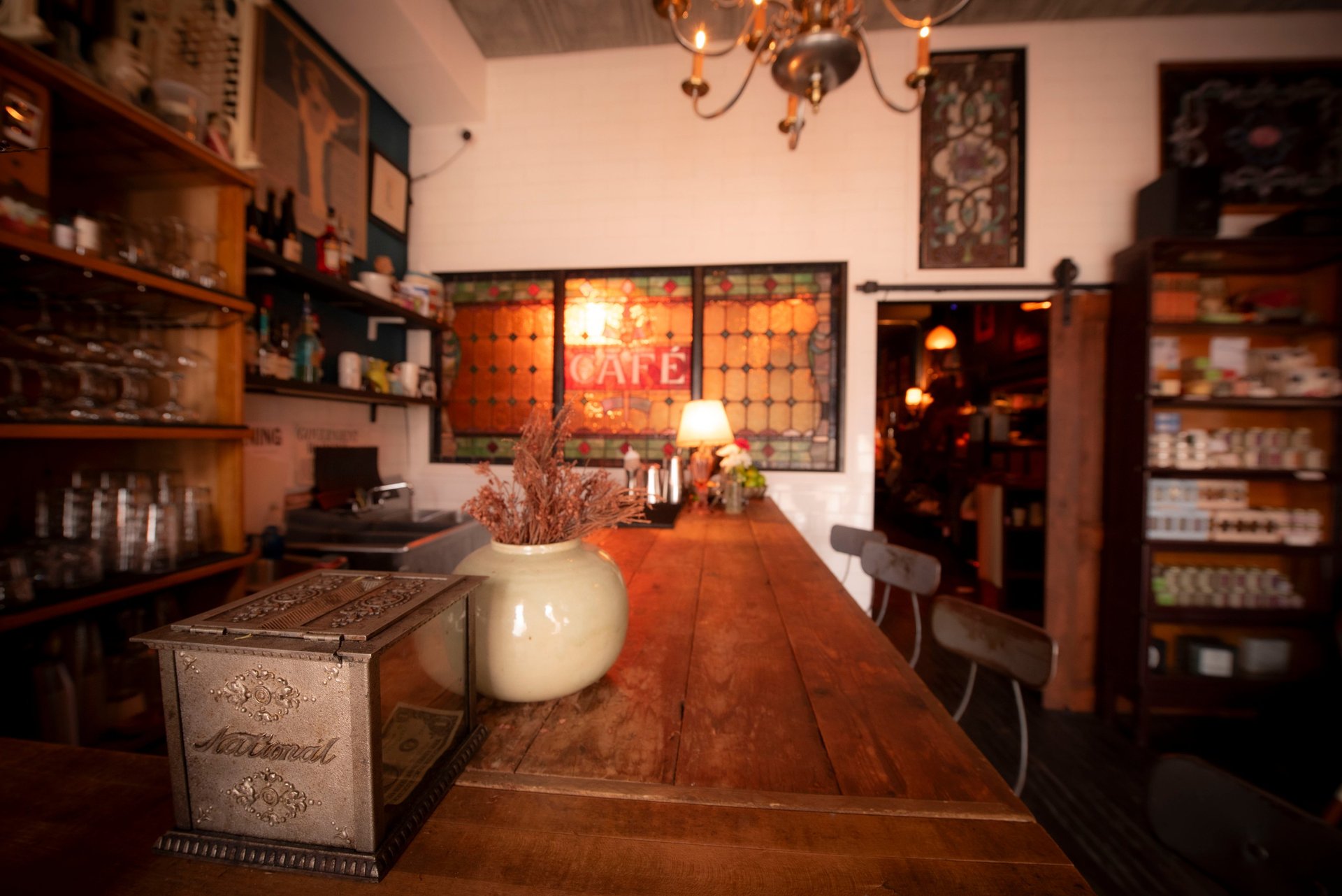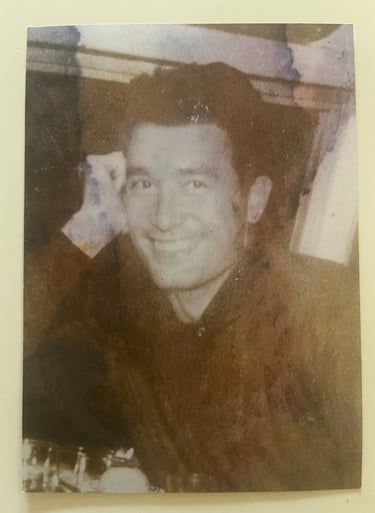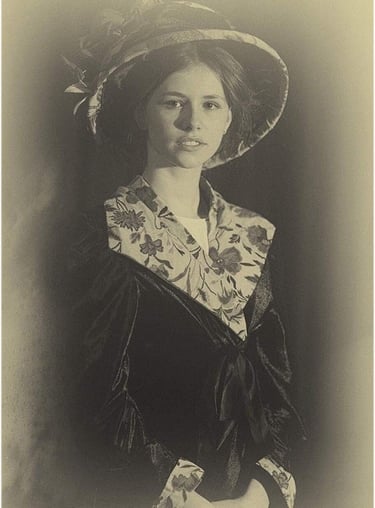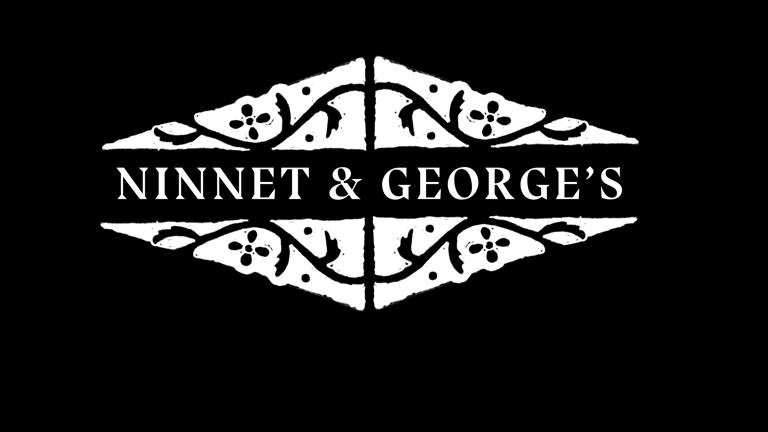Ninnet & George
Let's begin with Ninnet. Leontine Pauline Aubart, nicknamed Ninnet was boisterous, beautiful, proud and loud. Born in Paris on the twentieth of May 1887, the Eiffel tower was just being erected, Victor Hugo had just passed away; the world was in a hurried, mechanized rush. Young Ninnet was born into a modest home and became a lounge singer in her teen years. It was, most undoubtedly, in a Parisienne cabaret that she made the acquaintance of one of the richest men on the planet, Benjamin Guggenheim. He arranged for her to travel to New York with him in 1914, on an unsinkable ship, christened, "The Titanic".
She boarded the Titanic at Cherbourg and occupied cabin B-35. History has even recorded her ticket number. It was PC 17477 (and now you also have the internet password). The fare was £69 6s.
After the Iceberg collision, Léontine Aubart went to see what was happening, seemingly unconcerned, she went back to bed, only to get up again a little later and along with her maid went to meet Benjamin Guggenheim, before going up on deck.
She and her maid were rescued, in lifeboat 9 (yes, of course we've created a cocktail by that name. Yes, it has ice in it). After coming aboard the Carpathia, she sent a Marconigram to Paris on April 18th, 1912, it read, "Moi sauve, Ben perdu" (I am saved, Ben is lost).
She would later recall,
"We were in our night clothes. Lifebelts were put around us. On the deck there was no commotion. Every one of them a perfect gentleman - calmly puffing cigarettes and cigars and watching the women and children being placed in the boats. Marie got into the lifeboat and then I. We were the last women to leave the ship. Those Englishmen, still with cigarettes in mouth, facing the death so bravely that it was all the more terrible."
Back then, the billionaires went down with the ship. Upon her arrival in New York, penniless and not speaking a word of English, she was sent packing back to Paris on the Adriatic by none other than Mrs. Guggenheim -herself no doubt distraught, and in no mood to entertain a scandal.
Ninnet lived in Paris for the rest of her life; by all accounts -and one specific one- a bon vivant, fond of poker, smoking and throwing parties late into the night that more often than not had to be broken up by the police. In the final years of her life she rented out a small room in the back of her apartment to a young lodger, fresh himself off a ship that had docked in Marseille from the port of Alexandria in Eygpt. He had earned himself a scholarship to study architecture. His cabin and ticket number were, for him, fortunately, not a historical footnote.
George Tavladakis was dark skinned, keen-eyed, ambitious and temperamental. Orphaned at the age of fourteen by an outbreak of tuberculosis that took from him within a matter of months, his sister, his mother and finally his father; he too was a person for whom loss had played a deep and significant role early in life.
"Kiss your father", a relative told him, upon returning home from school to find his father laid out on the dining room table. "He was cold. Cold as marble," he would later recall. "I never attended another funeral."
Ninnet and George would be roommates for nearly ten years. He completed his studies in architecture and enjoyed the casinos and night life of Paris when he wasn't working. She continued to gamble and throw parties in the comfort of her small apartment on Rue Le Sueur.
I heard many stories about Ninnet growing up. Most of the tales were told over the poker table as I played with my father, betting with the bakelite chips that bore her initials NA. When she passed away, aged seventy-seven in nineteen sixty-four she left my father the small apartment and her few possessions. She, like my grandparents, are members of my family I never got to meet, but who were painted so vividly and brightly by words that I can not help but feel that we actually did meet.
I could not think of more fitting a name for a place where people and the past come together to celebrate life than that of Ninnet and Georges.







Cafe Ninnet is a bistro in the the classic European sense of the word. In short, you can down a quick Scotch at ten in the morning* or have an espresso at ten o'clock at night. Cabaret George is a bar and event space joined to Cafe Ninnet. If there are too many of us at Ninnet's we can spill over next door to George's.
We eat baguettes, don't have a single television screen in the place and surround ourselves with people we love. Both spots are designed with pieces from the 1880's all the way up to the 1960's. Yes, everything is for sale, but I'm reluctant to part with some of it.
*The more perceptive of you will be quick to point out that we're not open at ten in the morning, so I thought I'd beat you to the punch.
Briefly....
